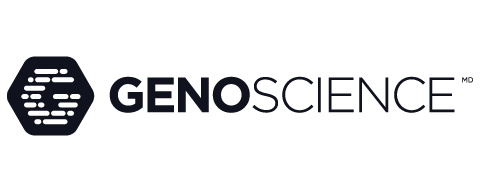Avitia Test Finder
Avitia's non-invasive liquid biopsy (LBx) test helps deliver results faster, so you and your doctor can choose the treatment that’s right for you. With just a single blood draw, Avitia's Follow It® assay detects key cancer signals in your DNA to guide more precise care — helping you and your care team choose the right treatment sooner.
Now with Avitia Test Finder, you can locate a liquid biopsy clinic near you.

Avitia Partners



Find Your Closest Site
Use the map to find the nearest clinic offering Avitia’s Follow It® (Liquid Biopsy) assay and have your doctor fill out the requisition form. If you have any questions, we're here to help: Contact Us.
Dynamic Map Instructions (Delete This)
Don't delete "cru-ncf"-elements
Style in Webflow, modify in Dynamic Map App
In case of an issue...
Important Links





































































































Dynamic Map Style Guide (Don't Delete)
CMS List Item
Filter Reset / Empty State
Pop-Up
Tooltip (Don't Delete)
Filter Address Search
Filter Chip
Map Location Pin
Cancer screening technology that creates meaningful change
Frequently Asked Questions
About Liquid Biopsy
A liquid biopsy is a non-invasive medical test that detects cancer and other diseases using a sample of blood or other body fluids. This method analyzes biomarkers, such as circulating tumor DNA (ctDNA) or RNA, to provide real-time insights into a patient's health.
Liquid biopsies work by detecting small fragments of DNA or other molecules shed by tumors into the bloodstream. These samples are then analyzed for specific mutations or biomarkers, allowing for potential early detection and monitoring of diseases.
Non-Invasive: Unlike traditional tissue biopsies, liquid biopsies require only a simple blood draw.
Convenience: Easier procedure that can be repeated for ongoing disease monitoring.
Comprehensive Insights: Provides a comprehensive picture of disease presence and progression.
Patient Benefits: They are non-invasive, involving a simple blood draw instead of surgery, which reduces complications like bleeding, infection, or anesthesia risks, and improves patient comfort and accessibility.
Clinical Advantages: They enable real-time monitoring through serial testing, can sample the entire tumor burden (accounting for tumor heterogeneity), help detect emerging resistance mutations, and identify early recurrence before imaging.
Operational Benefits: Liquid biopsies typically have a faster turnaround time (3-7 days vs. weeks for tissue), are more cost-effective overall than surgical procedures, are scalable for high-throughput processing, and offer standardized sample processing for quality consistency.
Yes, there are liquid biopsy tools specifically developed to meet the needs of labs in under-resourced or remote locations.
While liquid biopsies offer numerous advantages and can complement traditional biopsies, they may not entirely replace them in all scenarios. Liquid biopsies excel in regular monitoring and potential early detection, whereas tissue biopsies might still be necessary for detailed tissue analysis.
Liquid biopsies have demonstrated high accuracy and reliability in numerous clinical studies. Continuous advancements in technology are improving sensitivity and specificity, making them a trusted tool in modern diagnostics.
Coverage for liquid biopsies can vary by healthcare provider and region. It's advisable to consult with your insurance company or healthcare provider to understand the specifics of your policy.
Initial Therapy Selection: For metastatic cancer patients, it serves as an alternative when tissue is unavailable or insufficient, allowing rapid treatment decisions and comprehensive profiling equivalent to tissue testing.
Treatment Monitoring: It helps assess response during targeted therapy, detect resistance mechanisms when treatments fail, monitor disease progression through molecular changes, and detect minimal residual disease (MRD) after treatment.
Clinical Trial Matching: It enables biomarker-driven enrollment in precision medicine trials and real-time eligibility assessment.
Early Cancer Detection: While challenging due to low ctDNA levels in early-stage cancers and low incidence in the general population, approaches are being developed, including combined analyses of circulating proteins and cancer-associated mutations (e.g., CancerSeek), epigenetic alterations (e.g., methylation patterns), and fragmentation patterns of cfDNA. However, challenges remain with false-positives and ensuring improved overall survival.
About Combined LBx, NGS, AI
Artificial Intelligence (AI) plays a crucial role in enhancing NGS and liquid biopsy by:
- Data Analysis: AI algorithms can process vast amounts of genomic data quickly, identifying patterns and mutations with high accuracy.
- Predictive Insights: Machine learning models can predict disease progression and treatment responses, enabling personalized treatment plans.
- Efficiency and Speed: AI reduces the time needed to interpret complex data, speeding up diagnosis and treatment.
Improved Accuracy: AI-enhanced analysis minimizes human error and increases diagnostic precision.
Early Detection: AI helps in the early detection of diseases, which is crucial for successful treatment.
Cost-Effectiveness: Automation and AI reduce the resources needed for data analysis, lowering overall costs.
NGS and liquid biopsy create a powerful synergy for medical diagnostics and research:
- Comprehensive Analysis: Liquid biopsy samples are analyzed using NGS to identify genetic mutations and variations related to diseases, such as cancer.
- Early Detection: Combining NGS with liquid biopsy allows for the early detection and monitoring of diseases by identifying genetic changes before symptoms appear.
- Personalized Treatment: The detailed genetic information obtained helps in tailoring personalized treatment plans, improving patient outcomes. - Non-Invasive and Safe: Liquid biopsy is less invasive than traditional biopsies, offering a safer and more comfortable experience for patients.
Accuracy and Speed: NGS delivers fast, accurate genetic profiles, enabling quick decision-making in medical treatments.
Routine Monitoring: Liquid biopsy can be performed regularly, providing real-time data on disease progression or treatment effectiveness.
Broad Applicability: It is effective across various conditions, including cancer, genetic disorders, and infectious diseases.
- Expanded FDA Approvals: More actionable biomarkers are expected to receive FDA approval.
- Enhanced AI Integration: Artificial intelligence (AI) and machine learning are expected to revolutionize medicine by improving liquid biopsy assay performance, enhancing accuracy in mutation detection, reducing false positives, and automating reporting.
- Multi-Modal Data Integration: Combining genomics with imaging, proteomics, and clinical data will provide more comprehensive patient profiling.
- Expanded Biomarker Discovery: Research is ongoing to identify emerging targets like tumor mutational burden (TMB), microsatellite instability (MSI), homologous recombination deficiency (HRD), and immune signatures.
- Liquid Biopsy Evolution: This includes enhanced sensitivity and specificity, multiplexed analysis, and real-time monitoring. Expanded applications are expected in early cancer detection, minimal residual disease (MRD) monitoring, metastatic surveillance, and real-time efficacy assessment. Novel analytes beyond ctDNA, such as circulating tumor cells (CTCs), extracellular vesicles (EVs), circulating proteins, and metabolomics, are also being explored.
- Treating "ctDNA relapse": This is a new concept describing the detection of ctDNA in patients who have completed curative-intent therapy but do not yet have overt imaging-detected relapse. Clinical trials are being designed to determine if systemic treatment at this early molecular stage can lead to cure or simply delay progression.
- Standardization and Data Sharing: Continued efforts are needed to standardize preanalytical variables and promote international academic-industrial collaborations and data sharing to accelerate research and clinical integration.
- Liquid Pathology: This emerging field focuses on comprehensive liquid-based diagnoses, utilizing advances in NGS, proteomics, and AI for analyzing various circulating components (ctDNA, CTCs, EVs, proteins) to detect therapeutic efficacy, early recurrence, and lethal cancers at curable stages.
Explore Avitia's Comprehensive Panel Test Library
Latest from Avitia
Stay Ahead of Cancer Today








